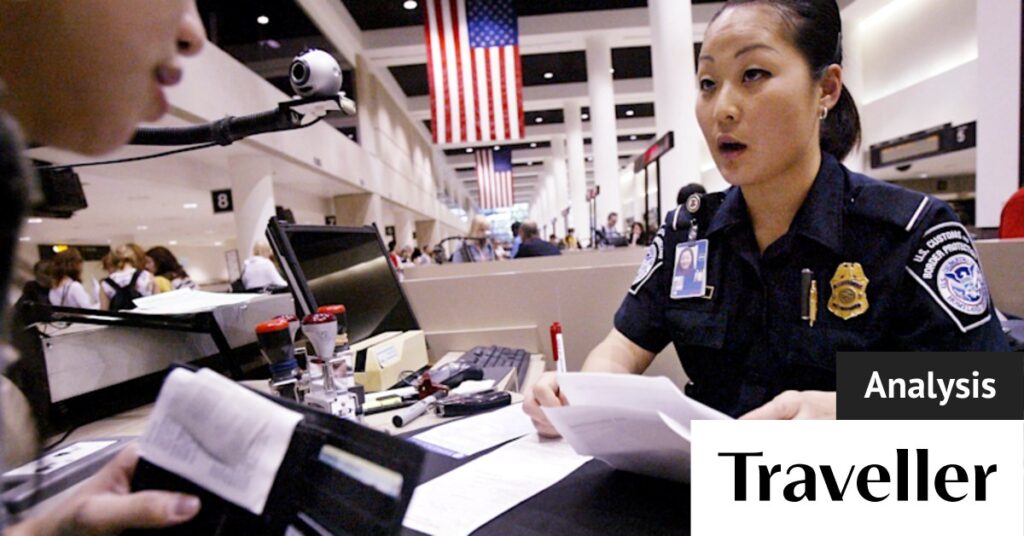
When Traveller columnist Ben Groundwater penned an article earlier this year asserting that the Trump administration would not deter him from visiting the United States, he sparked an unexpected wave of reactions. Groundwater’s piece, which was met with a record 525 comments, revealed a stark divide in public opinion. A significant portion of readers not only criticized the notion of traveling to the US under President Trump but also took issue with Groundwater for proposing such a visit.
Despite stories of Australians being turned away at US borders, data shows that Australians are visiting the US in increasing numbers. This trend stands in contrast to reports of declining visitor numbers from other countries. The latest figures from the Australian Bureau of Statistics indicate that in May, over 69,000 Australian residents returned from short trips to the US, marking an increase of more than 5,000, or approximately 8 percent, compared to the same period last year.
Rising Numbers Amidst Global Decline
The increase in Australian visitors to the US comes at a time when many other nations are witnessing a decline in travel to America. The reasons for this downturn are varied, including political tensions, changes in visa policies, and concerns over safety. Yet, Australians appear undeterred, with numbers rising across all major travel categories: holidays, visits to friends or relatives, and business trips.
According to the statistics, holiday travel saw a 12 percent increase, visits to friends or relatives rose by 15 percent, and business travel climbed by 8 percent compared to the previous year. These figures suggest a robust interest and confidence in traveling to the US despite the political climate.
Understanding the Australian Perspective
Experts suggest several factors contributing to this trend. Dr. Lisa Reynolds, a sociologist specializing in travel behavior, notes that Australians have historically maintained a strong cultural and economic connection with the United States. “The US remains a significant destination for Australians due to its cultural influence, economic opportunities, and familial ties,” she explains.
Moreover, the allure of iconic American destinations and events continues to draw Australian tourists. From the bustling streets of New York City to the sun-soaked beaches of California, the US offers a diverse range of experiences that appeal to Australian travelers.
Economic and Social Implications
The increase in travel also has economic implications. Tourism contributes significantly to the US economy, and Australian visitors play a role in bolstering this sector. The spending power of these tourists supports local businesses, from hotels and restaurants to entertainment venues and retail outlets.
Socially, the continued travel between Australia and the US fosters cultural exchange and understanding. It strengthens the bonds between the two nations, promoting a shared appreciation of each other’s cultures and values.
Looking Forward: The Future of Travel
As the world continues to navigate the complexities of international travel in a post-pandemic era, the resilience of Australian travelers serves as a testament to the enduring appeal of the US as a destination. Industry experts predict that as global travel restrictions ease and international relations stabilize, the number of Australians visiting the US will likely continue to rise.
In conclusion, while political and social factors may influence travel patterns, the strong ties between Australia and the United States suggest a continued interest in cross-Pacific journeys. As Ben Groundwater’s column highlighted, the decision to travel remains a personal one, shaped by individual perspectives and broader global trends.






